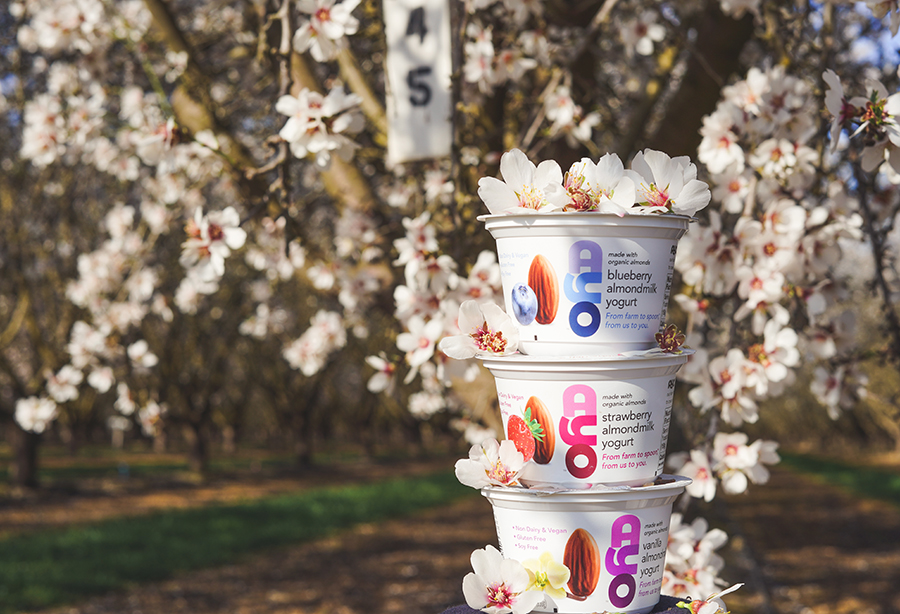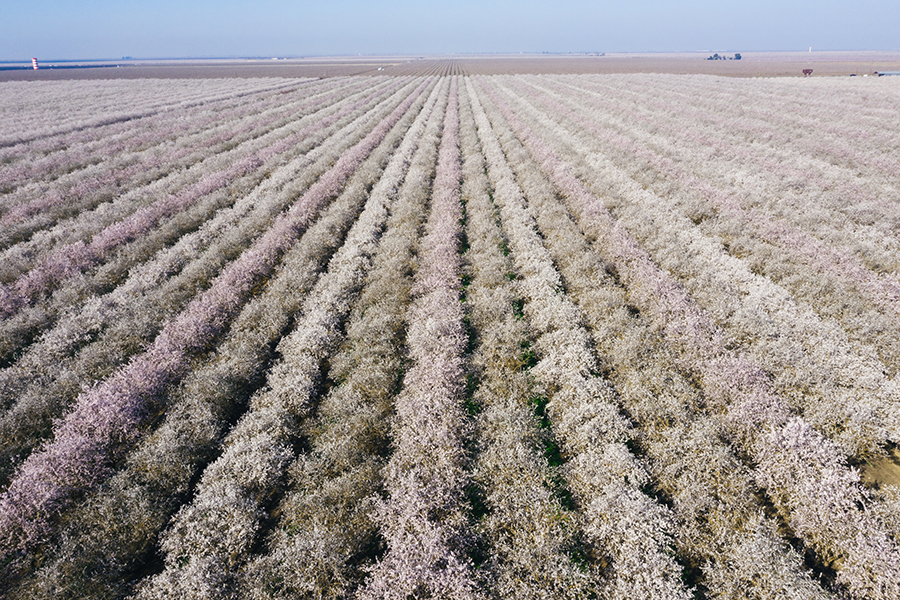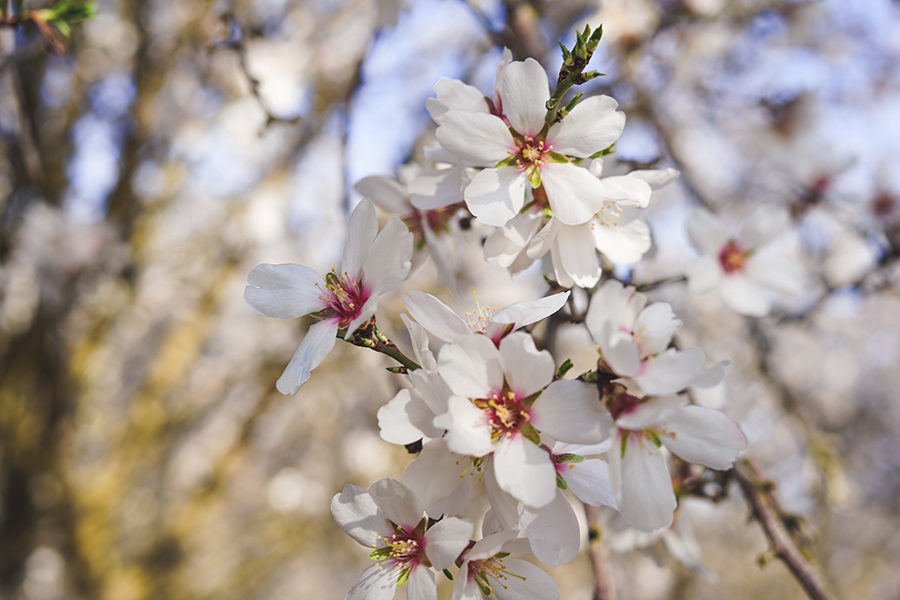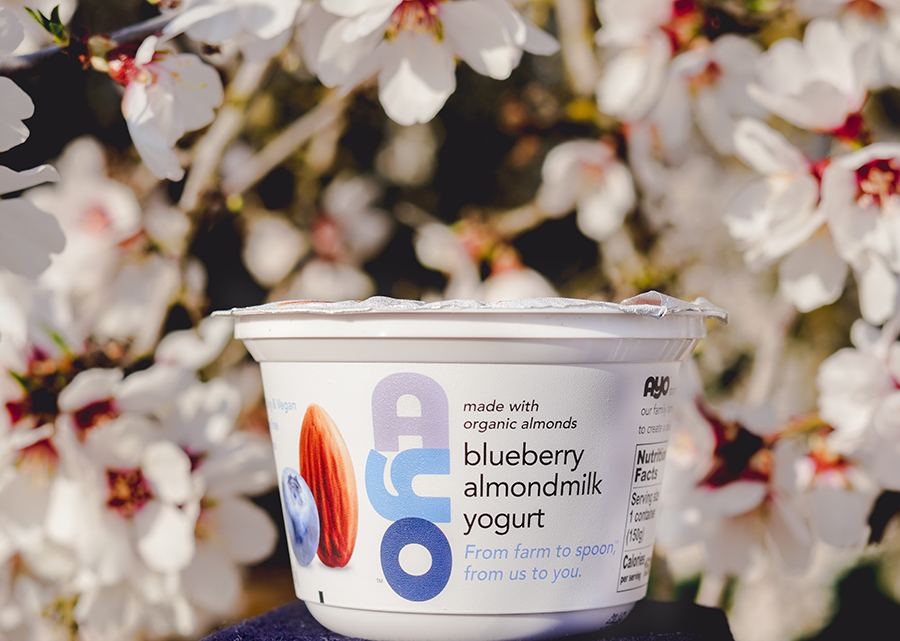Home > Farm > AYO Yogurt: How a Fourth-Generation Almond Farmer Found a New Way to Showcase His Crop
AYO Yogurt: How a Fourth-Generation Almond Farmer Found a New Way to Showcase His Crop

Peruse any grocery store these days and you’re bound to find just as many dairy alternatives as dairy options in the refrigerator section. The trend that started with plant-based milks has made its way to many other dairy products, including cheese, ice cream, and even yogurt. According to a 2020 study by Grand View Research, the vegan yogurt market (think soy, almond, coconut, etc.) was valued at $1.6 billion in 2019 and is expected to grow by 18.9% over the next seven years.
But that wasn’t the reason why Matt Billings started AYO Yogurt, a brand of plant-based yogurt that currently comes in blueberry, strawberry, peach and vanilla flavors. Instead, he wanted to showcase a crop that his family has been working with for four generations: almonds.

A Storied History
Almonds weren’t always the main focus for the Billings family. Around 1910, Billings’ great-grandfather traveled from Kansas to California to purchase land to farm. He settled in the San Joaquin Valley of California, but passed away at a young age due to typhoid during the Great Depression, leaving Matt Billings’ grandfather to tend to the farmland. With little experience in farming, he partnered with others to grow crops like potatoes, alfalfa, cotton and grapes.
See more: 7 Foods That Came From California
In the late 1960s, they planted their first almond trees, but still maintained a slew of other crops. Along the way, they realized that California, which produces 80% of the world’s almonds, had the perfect temperature for growing the crop.
When his grandfather passed away in 1985, the family started to increase the number of almond trees, and by the mid-2000s, they converted their entire operation to almonds. They also increased the number of organic almonds they produce, hovering now around 40% and growing.

Showcasing the Product

In the late 1990s, Matt Billings joined his family on the farm, now the fourth generation, and began selling the farms’ almonds. About 85 to 90% of the almonds they grow are sold to candy manufacturers to make marzipan and more, much of it going overseas.
“I started getting frustrated that we grow these almonds year-round, and most of it is sold as commodities,” Billings says. “I love what we do and care so much, and I thought, ‘What if we can make a product out of what we grow?’”
Billings started looking into possible options but wasn’t interested in almond milk or nut butter. He finally decided on yogurt, and after a few failed attempts he partnered with a company to come up with a product they were proud of.
See more: Inside Sunnyland Farms, One of Georgia’s Longest-Running Pecan Farms
The name AYO represents the simplicity they are trying to relay – it just stands for “almond yogurt.” The consistency is of a French, thinner-style yogurt. As far as Billings knows, he’s one of the first farms to truly take the product from farm to spoon.
“We really wanted to create something that was who we are,” he says. That’s why it was important that in the flavor, even if it contained fruit, you could still taste the toasted almond undertones. “We aren’t trying to make a dairy yogurt alternative, but really something to make our almonds shine,” he says.

Future Growth
COVID-19 threw a wrench into distribution plans for the company, as it did for many others. January and February of 2020 were banner months, and then growth stalled. However, business recently picked up again and the brand is expanding slowly into different geographic areas, California still being the biggest.
Yogurt is still a small portion of the overall almond farm business, but the goal is to keep it going. They may expand into other almond products down the line as well.
At the end of the day, the goal will always be to showcase the farms’ almonds. “We are really trying to be an authentic and transparent brand in a day and age when very few are actually authentic,” Billings says. He still walks the fields weekly, perusing the same almonds that are now used in the yogurt the company produces, and he has no plans of changing that.



